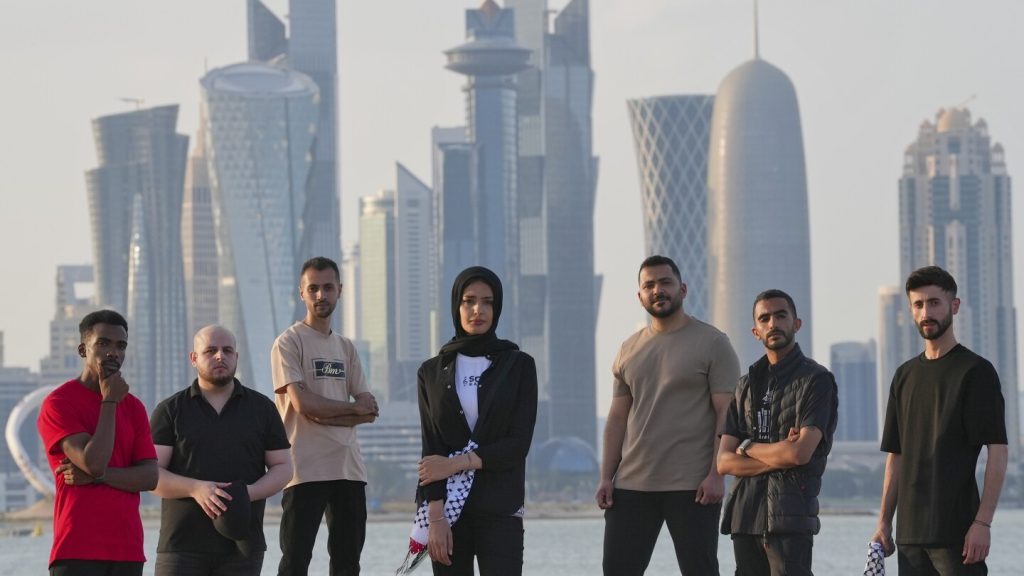DOHA, Qatar (AP) — Sol Band, a Palestinian group from Gaza, has found temporary refuge in Doha after fleeing the war-torn region. The band, which consists of seven musicians, including the only woman vocalist Rahaf Shamaly, has been using music as a means of coping with the hardships they faced back home. Despite the relative safety in Doha, the band members long to return to Gaza and continue their music, which serves as their escape from the difficult conditions of living under siege and occupation.
Five members of Sol Band returned to Gaza in August to work on their next album, only to be caught in the deadly conflict between Hamas and Israel in October. The band’s plans for music and performances were disrupted as the violence escalated, with over 35,000 people killed and large parts of Gaza destroyed. Despite the challenges, the band remains committed to their music as a source of hope and resilience amidst the chaos of war.
Sol Band, formed in 2012, has been a haven for its members who grew up in Gaza under extreme poverty and hardships. Music has been an escape for the band’s founder and percussionist Said Fadel, whose family has a background in musical tradition. The band’s popular song “Raweq Wa Haddy” offers a message of hope in difficult times, resonating with people who are experiencing displacement and loss due to the ongoing conflict in Gaza.
During their time in Gaza recording music, Sol Band members documented their experiences surviving airstrikes and attacks, often filming music videos in the midst of rubble and destruction. Despite the challenges, the band continued to create music with sounds of explosions in the background, urging people not to lose hope and to remain resilient. They also engaged in activities with displaced children to provide them with a brief escape through music and entertainment.
For Sol Band, the journey to Doha was a temporary escape from the violence and devastation of Gaza, but their uncertain visa situation poses a challenge to their future plans. Despite achieving international fame, the band members, like many Palestinians, face difficulties obtaining travel documents and visas for their performances. With pending shows in Belgium and Tunisia, the band’s future remains uncertain as they navigate the complexities of their Palestinian identity and the restrictions on their movement.
As they wait for their visa situation to be sorted out in Qatar, Sol Band members grapple with the question of whether their pre-war plans will materialize. The band, known for its message of hope and resilience through music, continues to inspire others in the midst of conflict and uncertainty. Despite the challenges they face, Sol Band remains united in their passion for music and their desire to uplift the spirits of those affected by the ongoing conflict in Gaza.


